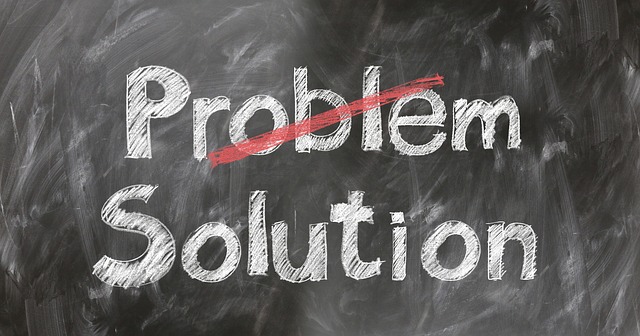Assignment 2
Case Study -Problem questions
-
Advise Johnny, whether the contract exists.
Under contract law, a contract is defined as a verbal or written agreement that is made between two entities or more than two entities that is legally bound. According to the traditional rule of contract law, the contract would exist if there is an offer made by one entity and acceptance from another entity. The entities enter a contract by signing the document or sign under ‘I agree’.
In Australia, the contract law is mostly legalized by the common law where it concerns the lawful enforcement of any promise that is formed as to where the parties enter bargain freely to form a legal relationship which is referred to as a contract. The submitted quotation is an offer by Steven on behalf of the restaurant which upon acceptance by the Marie for banquet becomes a valid contract.
Moreover, the clause in a contract like express terms is a promissory statement made to Marie for a particular data to hold the party in oral/written form which is a part of a contract and is enforceable. This is a unilateral contract in nature involved an offer made by only one party i.e. Steven for Lame Duck Restaurant. Here, the offering party is Steven that makes a promise or offer to host banquets on a particular day for Marie party. The accepted offer is a legally enforced contract in this one-sided contract. The contract is legally bound for the offering party. Jonny is advised that the restaurant is bound by the terms of the banquet contract.
Was there a mistake? If yes, what kind of mistake?
One of the complex parts of contract law is mistakes. Under the general rule, an entity that is erroneous about a certain contractual aspect or mistake is central; the law will not offer the entity with a right to get away with the legal obligations and the contractual duties. In this case, there was a mistake in the contract in Quotation A which was sent to Marie. The price in quotation was specifically for children birthday parties and it was not applicable for youth students.
Marie wants to host a banquet for CDU students at Lame Duck Restaurant at a price of Quotation A which is $105 per hour. Steven, the sales and marketing agent mistakenly offered Quotation A price list which was meant for children parties to which Marie gives acceptance for the quoted price and makes a booking for the banquet. At this point, only Steven is under a mistake.
This is a unilateral kind of mistake. This mistake is considered to be the most common mistake in contracts. This takes place when only one party is mistaken about a certain aspect in the contractual formed with another party so the other party is not mistaken about any aspect of the contract. It is very rare that the mistaken party receive some kind of relief or remedy such as rectification or rescission for this kind of mistake. In this case, the mistake in the contract is a mistake of fact.
This mistake is a unilateral mistake in the price of the subject matter of the contract which arises due to the fault of only one party, Steven on behalf of Lame Duck Restaurant. In most cases, a unilateral mistake in the contract cannot be avoided by the party. By the traditional rule, the contract made between Lame Duck Restaurant and Marie is enforceable in spite of this mistake.

-
Explain what will happen if the Lame Duck Restaurant is obliged to provide the premises for the banquet, but refuses to do so.
The parties under a contractual agreement are responsible to meet the contractual obligation otherwise the dispute between the contractual parties can arise which is mostly resolved through the judicial system. When the promising party refuses to fulfil a legal obligation in a contract with another party then it is said to be a breach of contract. In general rule, the failure to fulfil the contractual obligation lead to the breach of contract.
Thus, if Lame Duck Restaurant refuses to meet the obligation to provide the restaurant premises for the banquet as per contract this will lead to a breach of contract and can lead to legal dispute initiated by Marie to sue for consequential damages or compensation for the losses. The non-breaching party can take necessary legal action against the breaching party to resolve the dispute for non-fulfilment of the contract.
In this case, the non-breaching party is Marie, who can demand from the Steven, Lame Duck Restaurant (breaching party) to perform the contract term which is providing the restaurant banquet on a given date as per the approved quotation or can also ask for compensation for defaulting the contract and losses. On the positive side, in rare situations, the non-breaching party can also take unilateral steps towards the breaching party where it can liberate the restaurant for the contract and from its obligation or alter the contract and sometimes can provide a remedy as rescission.
As in the case of Cofrancesco Construction v. Superior Components, Inc. (Tenn. Ct. App. 1963)[1], the count decided that contractor was allowed to use a remedy of rescinding the contract under the unilateral mistake for the mistaken price in the contract.

-
Advise Johnny on whether there was a tort of negligence.
Negligence refers to the careless behaviour of an individual or an entity that is responsible for the injury/damage in a situation where duty is present to avoid incident or injury to other individuals or entities. The main responsible cause of damage, injury or loss to other entities is the breach of duty. The common law of negligence is also popularly known as tort law.
In the general rule of this law, the claimant holds the responsibility to prove the law of negligence towards the defendant that the defendant was not careful in performing the duty and the negligence or carelessness led to the injury or damage of the claimant. If the claimant proves and verifies the breach of duty of the defendant party, the claimant is likely to be compensated for the suffering and pain due to injury, damage or loss.
The injured resident needs to verify the breach of duty by the gardener and to prove that Lame Duck Restaurant is responsible for the cause of the injury to the resident. As settled in the case of Latimer v AEC Ltd (1953) HL[2], the company won against the personal injury case it had done what a reasonable person would do in circumstances but could not eliminate the risk of personal injury.
In this case, Johnny does not encompass a negligent tort as the apartment residents were already informed by the general notice which was placed in each resident’s mailbox about the garden work being done in the morning until lunchtime and residents should avoid going to the rooftop earlier than lunchtime. The gardener is not a negligent and injured individual who is not likely to prove the breach of duty in legal action against the restaurant.
In this case, the resident went to the rooftop before the said time increased the risk and made it more likely to cause personal injury. The claimant thus had the knowledge of the situation of the gardener work on the rooftop and ignored the notice which posed an injury risk that needed precautions from the claimant side. Thus, there is the least possibility of the tort of negligence.
-
Advise Johnny on whether he is liable for the actions of his gardener.
In accordance with the general principle of Australian law, any ignorance of the legal obligations, duties and corporate governance affect the company director and pose a risk of penalties and legal proceedings for the action of civil wrong or tort of negligence by the act of staff members or its subsidiaries. If the plaintiff, who is the injured resident, proves the breach of duty of the gardener, Johnny will be liable for the action of his staff (gardener).
The gardener is a staff member of the Lame Duck Restaurant and the principle of liability is applicable where the employer is held liable for the accident and in case of personal injury. Thus, in case of a legal dispute between the restaurant and the resident, the tort of negligence is not restricted to the action of an individual but extends to the entities that are not directly related to the action in form of negligence liability which is referred to vicarious liability.
The case of Ess Kay Electronics v First National Bank of Southern Africa (2001)[3] illustrated the unlawful activity of employees makes the employer vicariously liable. This allows the plaintiff to claim to recover the damages from a financially secure party. This is applicable as the gardener is as an employee working for Johnny, the restaurant owner who is financially secured and the gardener was acting in the course of the working hours when the injury to the resident took place.
-
Advice what damages have to be paid for: medical expenses, money lost by cancelling holiday or both?
If the plaintiff proves the breach of duty by the gardener, the restaurant owner will be liable to pay for damages in terms of monetary terms to the injured person. The restaurant is liable to reimburse the medical bills for the personal injury under vicarious negligence liability. This can be placed under the compensatory damage in this case of personal injury. However, assigning a monetary value on the inability of the injured resident on the enjoying the overseas ski holiday due to accident-related injury is difficult.
The company can be liable to compensate for the monetary damage in cancelling overseas ski holidays if the case is in favour of the claimant. As decided in Kirk v. Washington State Univ., (1987)[4] the loss of enjoyment of life was considered but it shall not direct double recovery in addition to disability, suffering or pain. Therefore, the restaurant owner will have to pay the damage and personal injury for the cost of medical treatment and care associated with a wrist injury, loss of enjoyment damage which has kept the claimant from enjoying the overseas ski activity.
[1]Justia, Tennessee Court of Appeals Decisions,1963 < http://law.justia.com/cases/tennessee/court-of-appeals/1963/371-s-w-2d-821-1.html >
[2] Carby-Hall, Jo, ‘Employers’ Liability–from Physical to Psychiatric Illnesses, (2011) Studia Prawnicze: respray I materiały 7: 49-57.
[3] Murray, Shaun,’ The extent of an employer’s vicarious liability when an employee act within the scope of employment, (2012) Diss. North-West University.
[4] Schwartz Victor E and Cary Silverman, ‘Hedonic Damages-The Rapidly Bubbling Cauldron’, (2003) Brook. L. Rev. 69: 1037.
.


